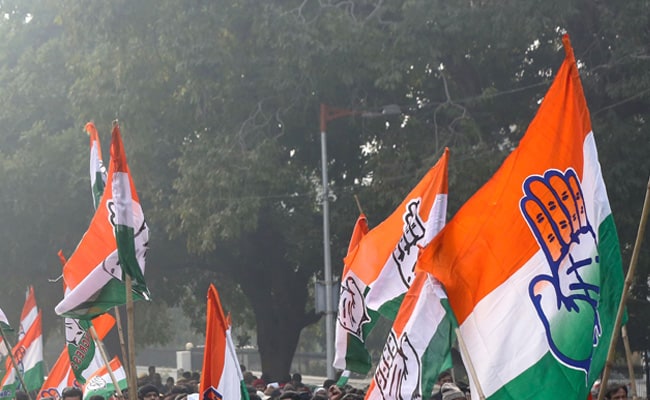 |
|
The recent takedown of a social media post by the Congress party targeting Prime Minister Narendra Modi underscores the increasingly volatile and polarized nature of Indian politics, particularly within the digital sphere. The incident, triggered by a post perceived as criticizing PM Modi's absence during a crucial meeting to address the terror attack in Jammu and Kashmir's Pahalgam, quickly escalated into a full-blown political skirmish, involving accusations, counter-accusations, and the resurfacing of contentious issues. The controversy highlights the sensitivity surrounding political messaging, especially when it intersects with national security concerns and external perceptions. The speed at which the issue gained traction, amplified by the involvement of a former Pakistani minister, demonstrates the interconnectedness of the digital landscape and the potential for cross-border political maneuvering. This incident reveals the power social media holds to shape public discourse and the challenges faced by political parties in managing their online presence. The Congress party's decision to remove the post, allegedly under pressure from the Indian public, signals the potential for swift and significant consequences stemming from online activity. The BJP's retaliatory response, targeting Rahul Gandhi, further exacerbates the already tense political climate and reinforces the narrative of deep-seated divisions within the Indian political landscape. The incident also raises critical questions about the boundaries of acceptable political discourse and the responsibility of political actors to ensure that their messages do not undermine national unity or security. The use of provocative language and imagery, as alluded to in the BJP's claim of "Sar Tan Se Juda" imagery, can contribute to the spread of misinformation and incite violence. The digital battleground has become an arena where perceptions are shaped, narratives are controlled, and political scores are settled. It is imperative for political parties to approach social media engagement with a sense of responsibility and awareness of the potential ramifications of their actions. The reliance on inflammatory rhetoric and divisive tactics can have detrimental effects on the overall health of the political system and the cohesion of Indian society. The incident also begs the question of whether political discourse is being conducted in good faith. The swift escalation of the situation and the immediate resort to accusatory tactics suggest a lack of willingness to engage in constructive dialogue and address underlying concerns. Political parties should strive to promote a culture of respectful debate and focus on substantive policy issues rather than engaging in personal attacks and mudslinging. The controversy underscores the need for greater media literacy and critical thinking skills among the Indian public. Citizens must be able to discern credible information from misinformation and resist the temptation to be swayed by biased narratives. The spread of fake news and propaganda can have a significant impact on public opinion and undermine the integrity of democratic processes. The responsibility lies with both the media and the public to ensure that information is disseminated and consumed responsibly. The incident involving the Congress party and PM Modi serves as a cautionary tale about the perils of social media in the realm of politics. The digital landscape has become a powerful tool for both positive and negative ends, and it is crucial for political actors to wield this tool with wisdom and restraint. The focus should be on fostering informed debate, promoting civic engagement, and building a more cohesive and resilient Indian society. The government also has a responsibility to create a regulatory framework that promotes responsible online behavior while safeguarding freedom of speech. This framework should address issues such as hate speech, incitement to violence, and the spread of misinformation. The aim should be to create a digital environment that is conducive to healthy political discourse and strengthens democratic values. The incident should also prompt a broader discussion about the role of social media platforms in shaping political discourse. These platforms have a responsibility to address the spread of misinformation and hate speech on their platforms and to ensure that their algorithms do not amplify divisive content. They should also be transparent about their content moderation policies and processes. The Congress post and subsequent reactions highlight a deep-seated mistrust and animosity between the major political players in India. Such a level of antagonism can be destructive to democratic processes, hindering meaningful dialogue and compromise needed to address critical national issues. Instead of fostering a climate of constant conflict, political parties should focus on finding common ground and working together to improve the lives of Indian citizens. The Pahalgam terror attack and the response should have been an opportunity for unity, yet it devolved into more partisan bickering. This is a recurring pattern in Indian politics and reflects a deeply entrenched polarization. The political arena should not be a battleground for personal attacks and propaganda; it should be a forum for the discussion of ideas and the resolution of differences. The focus on negativity and the constant search for political advantage can distract from the pressing challenges facing the nation, such as poverty, inequality, and environmental degradation. Political parties should prioritize the needs of the Indian people and work towards a more inclusive and equitable society. This will require a shift in mindset and a commitment to ethical and responsible political behavior. Ultimately, the incident serves as a reminder that political discourse in the digital age is a complex and multifaceted phenomenon with far-reaching consequences. It is incumbent upon political actors, media organizations, and the public to engage in this discourse with a sense of responsibility and awareness of the potential ramifications of their actions. The goal should be to create a digital environment that fosters informed debate, promotes civic engagement, and strengthens democratic values. The digital world must not become a weapon used to damage the democratic fabric of India. Instead, it must be used to elevate it.
Source: Congress Deletes 'Gayab' Post Targeting PM Modi After Outrage
